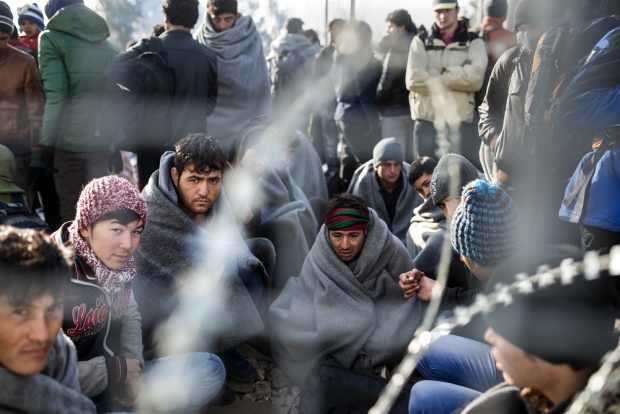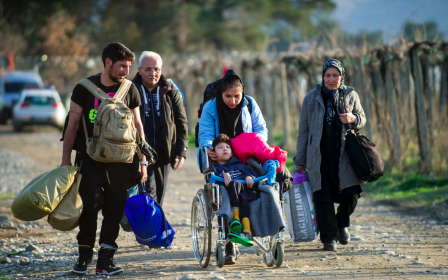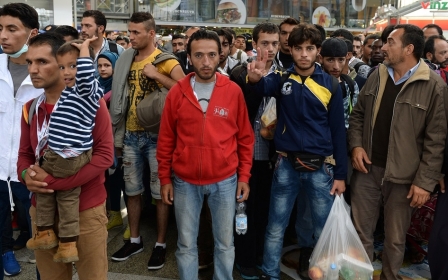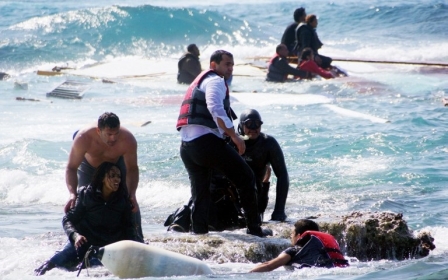Thousands of refugees stranded after Balkan border restrictions bite
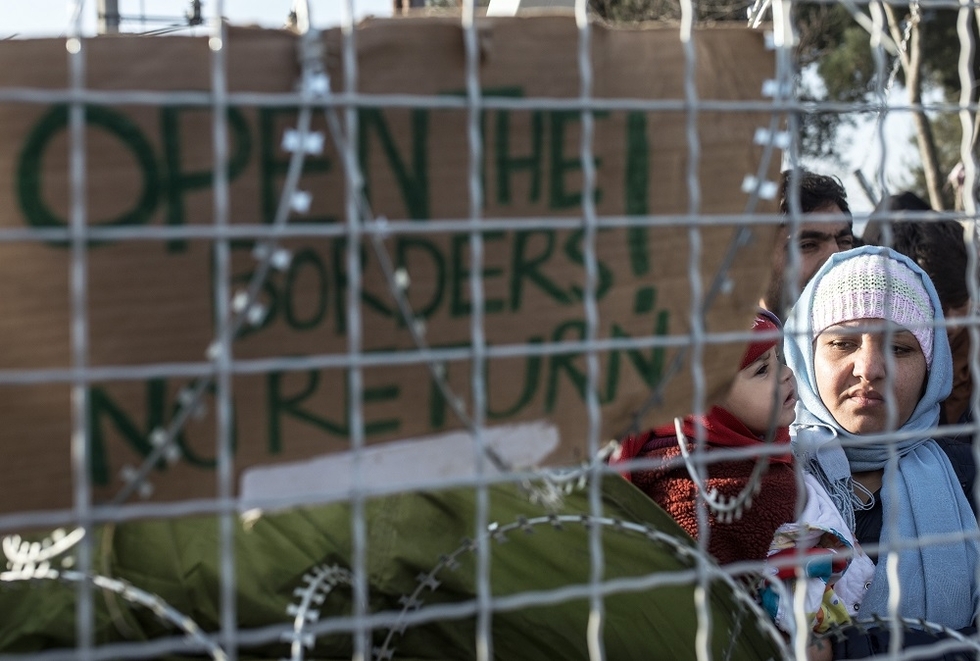
More than 110,000 migrants and refugees have crossed the Mediterranean to Greece and Italy already this year, but border closures are adding to the havoc with thousands of people now left stranded, the UN warned on Tuesday.
During a visit to the Greek island of Lesbos, the new UNHCR chief Filippo Grandi said that “he was very worried about the news that we are getting about increasing closures of European borders along the Balkans route because that will create further chaos and confusion".
Up to 8,000 refugees and migrants have found themselves trapped on the Greece-Macedonia border after Skopje barred passage to Afghans on Sunday and introduced tougher document checks for Syrians and Iraqis.
Last November, Macedonia sparked controversy by closing its border to migrants and refugees not from Iraq, Syria and Afghanistan - once again stranding thousands of people.
Greece on Tuesday began sending busloads of Afghans back to Athens, local police said. Hundreds of people have been sent back to be housed in temporary camps.
Athens has expressed its "displeasure" over tougher border controls in the Balkan countries, Prime Minister Alexis Tsipras' office said on Tuesday, while the EU voiced “concern” about a possible humanitarian crisis on Balkan migrant routes.
Hungary on Monday reported a sharp rise in the numbers of migrants breaching its southern borders in February, the first significant surge since the frontiers were controversially sealed last year to all asylum seekers and migrants.
About 1,500 people tried to enter the EU member state illegally from Serbia this month, with 500 alone caught between Friday and Sunday, police said. Authorities said many were economic migrants from Morocco, Iran and Pakistan, and faced deportation.
The spike over the weekend comes after Serbia, Austria, Slovenia, Croatia and Macedonia agreed a deal that would restrict asylum registration to a single point in Macedonia, prompting Serbia to say that it would no longer let in refugees coming from Bulgaria.
According to the UN’s International Organisation for Migration, as of Tuesday morning 102,547 people had arrived in Greece, while another 7,507 had arrived in Italy with 413 people known to have been killed already trying to make the crossing.
Last year, the 100,000 mark was only topped during the summer, IOM spokesman Itayi Viriri said.
The crisis on the Macedonia border comes less than a week after Austria introduced restrictions, saying it would only accept 80 asylum applications a day and let some 3,600 through to claim asylum elsewhere.
At the height of the migrant crisis last year, more than 10,000 people were passing through daily, with more than one million refugees and migrants landing on Europe's shores in 2015.
The numbers fell slightly during the winter months when the voyage is the most dangerous, but fresh fighting in Syria, as well as concerns about further border closures, have prompted people to take the journey.
As the main gateway into the EU bloc, Greece has been struggling to cope with the inflow and fears are now growing that restrictions by other members will leave tens of thousands stranded on its territory.
"We risk having three very difficult weeks ahead" because of the border blockade, Philippe Leclerc, head of the UN refugee agency in Greece said on Tuesday, adding that Greece's migrant facilities could not handle the load.
Greece has had to handle the bulk of new arrivals over the last 12 months, with a 2015 EU deal aimed at redistributing asylum seekers throughout the 28-member block failing to gain traction.
The scheme, which aimed to relocate some 160,000 people from Greece and Italy to other member states is "too small" while another scheme to directly resettle refugees from Turkey "has not started yet,” Grandi said.
Syria-Turkey closure
Refugees have also been hit hard by closures on the Turkey-Syria border which have left tens of thousands of people unable to cross to safety even while fighting in the northern Aleppo province intensifies.
The desperate situation has prompted a resurgence in people smuggling, as people try to get through.
"The people smugglers are there and they're shouting 'Turkey! Who wants to go to Turkey?'" said Fatima al-Ahmed, a Syrian refugee who had just arrived in the southern Turkish city of Kilis.
"They are mean, violent, and only think about money. They push us like beasts, hitting the women who don't walk fast enough, even when they are carrying babies," she told AFP. "It's terrible, it's the law of the jungle."
She said she decided to flee the rebel-held area of Sakhur in eastern Aleppo with her two-year-old child after heavy fighting made it almost impossible to stay, especially after her husband was killed in a bombing a month ago while he was looking for food.
Andrea Vukovic, Regional Advocacy Manager based it Athens, talked to MEE on the situation of the refugees:
Middle East Eye propose une couverture et une analyse indépendantes et incomparables du Moyen-Orient, de l’Afrique du Nord et d’autres régions du monde. Pour en savoir plus sur la reprise de ce contenu et les frais qui s’appliquent, veuillez remplir ce formulaire [en anglais]. Pour en savoir plus sur MEE, cliquez ici [en anglais].


